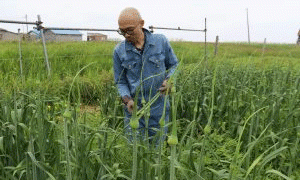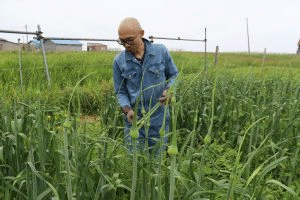In the northern reaches of Hokkaido, three unconventional farmers—Ryo Nakayama (49), Michiaki Kodama (44), and Yoshihito Saito (41)—are proving that garlic cultivation can thrive even in Wakkanai’s challenging climate. What started as individual experiments has grown into a collective vision: a “Garlic Festival” to showcase their homegrown produce and energize the local economy.
The Farmers Behind the Movement
- Ryo Nakayama, president of Wakkanai Telecommunication Equipment, has been growing garlic for a decade. This season, he cultivated 4,500 plants, noting that the bulbs are thicker than ever. Harvest is expected by late July, with fresh garlic sold at local markets.
- Michiaki Kodama, a coffee roaster by trade, tends to 2,000 garlic plants on land once farmed by his grandfather. He credits the mineral-rich sea breeze for robust growth and plans to harvest by month’s end.
- Yoshihito Saito, a web designer and maple syrup producer, grows 4,000 plants and recently sold garlic scapes (the edible flowering stalks) for the first time, reporting better yields than last year.
Challenges and Opportunities
Weeding is a major hurdle as harvest approaches, but these farmers remain undeterred. Their shared dream? A “Garlic Fest” featuring local dishes, promoting Wakkanai as a specialty garlic producer. Such events could mirror successful agricultural festivals worldwide, like Gilroy Garlic Festival (USA) or La Fête de l’Ail Rose (France), which attract thousands and boost regional branding.
The Bigger Picture: Garlic’s Rising Demand
Global garlic consumption is projected to grow at 4.1% annually (2023–2030), driven by health trends and culinary demand (Statista, 2023). Wakkanai’s unique terroir—cool climate, sea minerals—could position its garlic as a premium product, much like black garlic, a fermented variant with a global market value of $280 million (2022).
A Festival Worth Rooting For
Nakayama, Kodama, and Saito exemplify how small-scale farming can spark big ideas. By leveraging Wakkanai’s natural advantages and community spirit, their Garlic Fest could become a catalyst for agritourism and economic revival. As they say, “From tiny garlic cloves, mighty festivals grow.”































